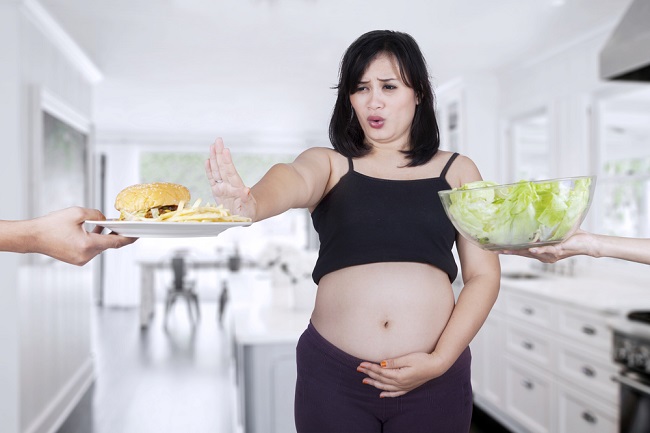Foods that should be avoided by pregnant women
When you are pregnant, many things have to be done more carefully. One of them is eating . Because, there are some foods that should be avoided by pregnant women because they have the potential to endanger health fetus in the womb .
Completing nutritional needs while pregnant is required to keep the fetus healthy and able to grow properly. Whatever is consumed by pregnant women will affect the fetus in the womb. There are foods that are beneficial for fetal growth and development, but there are also foods that actually endanger the health of the fetus, so it should be avoided by pregnant women.

List of foods that should be avoided by pregnant women
Although pregnant women are encouraged to consume various types of food, not all foods can be consumed by pregnant women. The following are some types of foods and drinks that need to be avoided by pregnant women:
1. Unpasteurized milk or cheese
Pasteurization is a heating process that functions to kill bacteria in food or drink, without damaging the nutritional content. Therefore, pregnant women should not consume milk that has not gone through this process, because it could be that the milk contains bacteria that can harm the health of the womb in the womb.
2. High-end seafood
Swordfish (swordfish ), mackerel, sharks, tuna, and shellfish are some types of seafood that contain high mercury. If consumed in excessive amounts, mercury can cause pregnant women to experience nerve, kidney and immune system disorders. In addition, the fetus can also experience disability and growth disorders.
If pregnant women want to eat seafood, the recommended maximum portion is 300 grams or about 2 servings per week.
3. Raw or undercooked fish
If pregnant women like to consume sushi , you should avoid these foods first during pregnancy. Eating raw fish and shellfish or being cooked half-cooked can increase the risk of pregnant women having an infection.
Pregnant women can still eat fish and shellfish, as long as they are cooked until they are fully cooked.
4. Raw or undercooked meat
Always make sure the meat that is consumed by pregnant women is cooked. This is very important, because immature meat can contain harmful germs. When entering the body of a pregnant woman, these germs can cause disease, such as listeria, which can endanger the fetus and pregnant women themselves.
5. Un washed fruits and vegetables
Don't forget to always wash fruits and vegetables before pregnant women eat them. If not, germs and parasites attached to these fruits or vegetables can cause infection.
One type of parasite that can contaminate fruit or vegetables is Toxoplasma . This parasite can cause blindness and brain disorders in the fetus.
6. Offal
Pregnant women should not consume any innards, although basically these foods have many nutrients. Offal can only be consumed by pregnant women once a week, with adequate portions. Consuming too much innards can interfere with fetal growth, and cause liver disorders in pregnant women.
7. Raw eggs
Raw eggs and foods made from raw eggs, such as fresh mayonnaise, run the risk of being contaminated by Salmonella bacteria.
These bacteria can cause infections that make pregnant women vomit, fever, diarrhea, and stomach cramps. In some cases, abdominal cramps due to this infection can even cause premature birth.
8. Caffeine
Actually it's okay to consume caffeine during pregnancy, but it must be limited. Caffeine found in coffee, tea, and chocolate has the potential to interfere with fetal development. Caffeine can even cause miscarriage, if pregnant women consume it excessively.
During pregnancy, consumption of caffeine in a day should be no more than 200 mg, or about 2-3 cups of coffee, especially in the first trimester of pregnancy.
9. Alcohol
Pregnant women are advised not to consume alcohol at all. Even in small amounts, alcohol can interfere with fetal development and increase the potential for miscarriage.
If pregnant women have certain allergies or diseases, other foods that need to be avoided are certainly foods that can trigger an allergic reaction or worsen the condition of the disease. To be sure, consult directly with the obstetrician. The doctor will tell you what foods to avoid during pregnancy, according to the condition of pregnant women.
Label : Family
Comments
Post a Comment